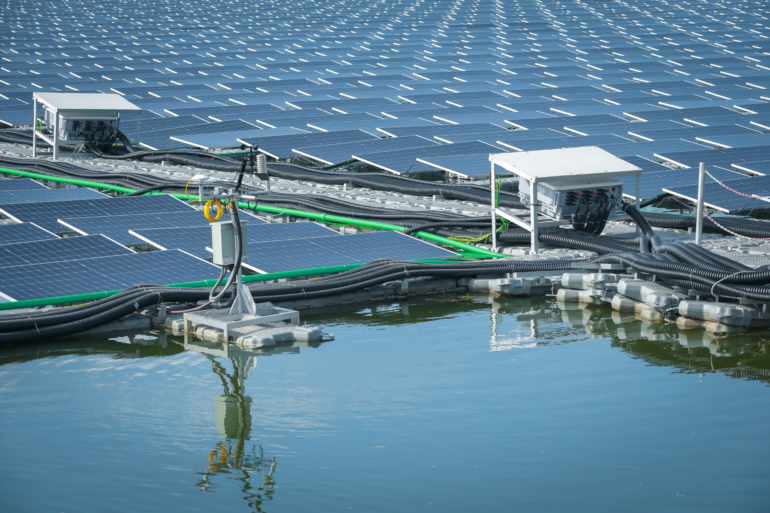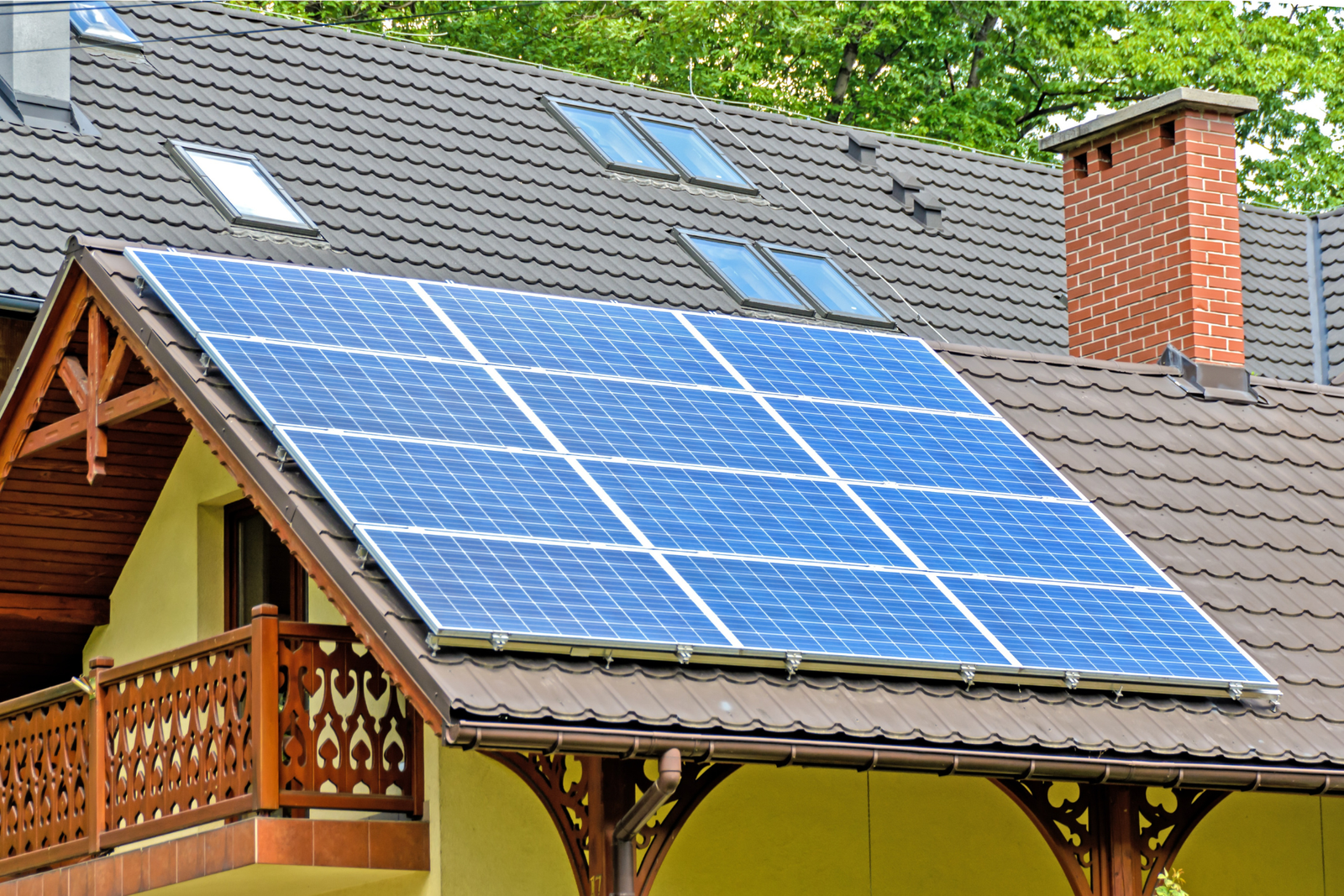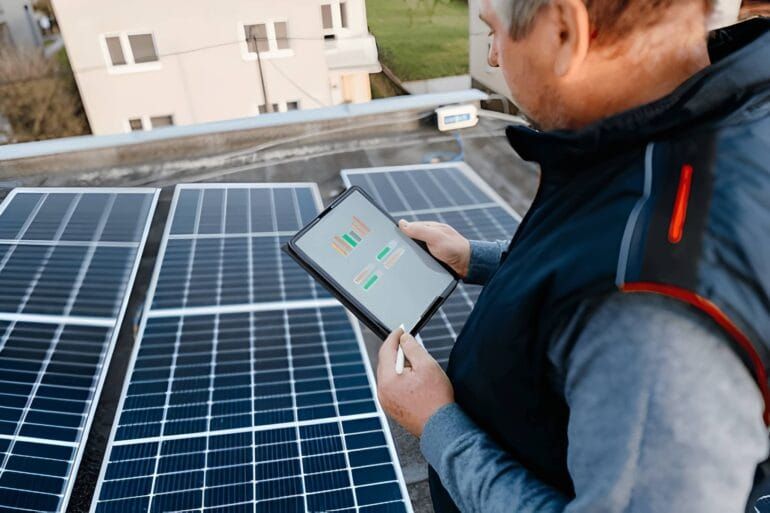Introduction
Solar panels for your home stand out as a beacon of hope for a cleaner, greener future. As homeowners increasingly seek ways to reduce their carbon footprint and lower their energy bills, the installation of solar panels for houses has gained significant traction. In this comprehensive guide, we’ll explore the fascinating world of solar panels, unraveling the benefits, challenges, and considerations for integrating this innovative technology into your home.
Understanding Solar Panels
Before delving into the specifics, it’s crucial to grasp the fundamentals of solar panels. Solar panels, also known as photovoltaic (PV) panels, harness sunlight and convert it into electricity through the photovoltaic effect. Comprised of interconnected solar cells, these panels generate direct current (DC) electricity, which is then transformed into usable alternating current (AC) power through an inverter.
Environmental and Economic Benefits
One of the primary motivations for adopting solar panels for your house is the positive impact on both the environment and your wallet. Solar energy is a clean, renewable resource that produces minimal greenhouse gas emissions, reducing your carbon footprint. Moreover, by generating your electricity, you can potentially eliminate or significantly reduce your reliance on traditional utility sources, leading to long-term cost savings.
Financial Incentives and Rebates
To further sweeten the deal, many governments and local authorities offer financial incentives and rebates for homeowners who choose to invest in solar panel installations. These incentives aim to accelerate the adoption of renewable energy and make the initial investment more affordable. Exploring available programs in your region can significantly contribute to the overall cost-effectiveness of installing solar panels for your house.
Overcoming Challenges
While the benefits are undeniable, it’s essential to acknowledge and address potential challenges associated with solar panel installations. Factors such as upfront costs, intermittency of sunlight, and the need for adequate roof space can pose hurdles. However, advancements in technology, coupled with innovative financing options, are steadily mitigating these challenges, making solar energy a viable and accessible choice for homeowners.
Assessing Your Home’s Suitability
Before committing to a solar panel installation, it’s crucial to evaluate your home’s suitability for harnessing solar energy. Factors such as roof orientation, shading, and structural integrity play pivotal roles in determining the effectiveness of a solar system. Consulting with a reputable solar installer and conducting a thorough site assessment will help tailor the solution to your specific needs and conditions.
Choosing the Right Solar Panels
The solar panel market offers a myriad of options, each with its own set of specifications and features. Understanding factors such as efficiency, durability, and warranty terms is essential in making an informed decision. Additionally, exploring emerging technologies, such as bifacial panels or solar tiles, can provide alternatives that align better with your aesthetic preferences and energy requirements.
Installation Process and Maintenance
Once you’ve chosen the right solar panels for your house, the installation process begins. A professional installer will handle the mounting of panels, wiring, and connecting the system to the electrical grid. Regular maintenance, though minimal, is necessary to ensure optimal performance. Cleaning the panels, checking for shading issues, and monitoring system output are routine tasks that contribute to the longevity and efficiency of your solar installation.
Monitoring and Maximizing Efficiency
Once your solar panels are up and running, it’s essential to monitor their performance regularly. Many modern solar systems come equipped with monitoring tools that allow homeowners to track energy production in real-time. By staying informed about your system’s output, you can identify any potential issues promptly and ensure that your solar panels are operating at peak efficiency. Additionally, implementing energy-efficient practices within your home, such as using energy-efficient appliances and optimizing your daily energy consumption, can further maximize the benefits of your solar investment.
The Future of Solar Technology
The world of solar technology is dynamic and continually evolving. Emerging innovations, such as solar paint, transparent solar cells, and even solar-powered windows, hint at a future where every surface has the potential to generate clean energy.

Keeping an eye on these developments can provide insights into how the efficiency, aesthetics, and integration of solar panels may evolve in the coming years. Staying informed about the latest advancements ensures that your solar installation remains relevant and competitive in the ever-changing landscape of renewable energy.
Community and Social Impact
Beyond individual benefits, the adoption of solar panels for houses contributes to a broader societal impact. As more homeowners embrace solar energy, communities become less reliant on traditional power sources, reducing overall environmental impact. Additionally, the growth of the solar industry creates job opportunities and stimulates economic development. By becoming a part of this movement, homeowners not only contribute to their well-being but also play a role in fostering a more sustainable and resilient society.
Tips for a Seamless Transition
Transitioning to solar energy is a significant undertaking, but with careful planning and consideration, the process can be smooth and rewarding. Engaging with reputable solar installers, conducting thorough research, and seeking advice from other solar adopters can provide valuable insights and ensure a seamless transition. Additionally, exploring financing options, such as solar leases or power purchase agreements, can make the initial investment more manageable, allowing more homeowners to embrace the benefits of solar power.
Building a Solar Community
The benefits of solar energy extend beyond individual homes. Consider joining or forming a local solar community or neighborhood solar cooperative. These initiatives bring together homeowners interested in solar energy, creating a collective approach to installation, maintenance, and even bulk purchasing of solar equipment. By pooling resources and knowledge, communities can amplify the impact of solar energy adoption, making it more accessible and affordable for everyone involved.
Educational Initiatives
Empowering yourself with knowledge about solar panels is just the beginning. Consider participating in or organizing educational initiatives within your community. Workshops, webinars, or informational sessions can help demystify solar technology, address common concerns, and inspire others to leap into sustainable energy. As the community becomes more informed, the collective shift towards solar adoption gains momentum, creating a ripple effect of positive change.
Solar Panel Artistry and Integration
Modern solar panels not only generate energy but can also serve as aesthetic elements in architectural design. Explore the artistic potential of solar technology by incorporating solar panels into your home’s design or landscape. Solar panels can be integrated into building materials, such as solar windows or solar roof tiles, offering a seamless and visually appealing alternative to traditional installations. Embracing the artistic side of solar energy enhances the overall appeal of clean energy solutions.
Addressing Energy Storage
While solar panels generate electricity during the day, energy storage solutions, such as solar batteries, are essential for harnessing that energy during periods of low sunlight or power outages. Explore the possibilities of integrating energy storage systems into your solar setup. This not only ensures a continuous and reliable power supply but also contributes to grid stability and resilience, especially during peak demand periods or adverse weather conditions.
Global Perspectives on Solar Adoption
The adoption of solar panels is not limited to specific regions or countries. Explore global perspectives on solar adoption and learn from success stories worldwide. Understanding how different communities and nations have overcome challenges and embraced solar energy can provide valuable insights for optimizing your solar journey. Collaboration on an international scale allows us to share best practices, innovations, and strategies for achieving a more sustainable and interconnected world.
Advocacy and Policy Engagement
Become an advocate for solar energy by engaging with policymakers and supporting initiatives that promote renewable energy adoption. Stay informed about local and national policies related to solar energy, and actively participate in discussions about clean energy transition. By voicing your support for pro-solar policies and incentives, you contribute to the creation of a regulatory environment that fosters sustainable energy practices and encourages more widespread adoption.
Conclusion
Embracing solar panels for your house is not just a commitment to a sustainable future but also a strategic investment in energy independence. As technology advances and awareness grows, the solar revolution is set to redefine the way we power our homes. By understanding the nuances of solar energy, navigating financial incentives, and selecting the right components, you can embark on a journey toward a brighter, cleaner, and more sustainable tomorrow.







